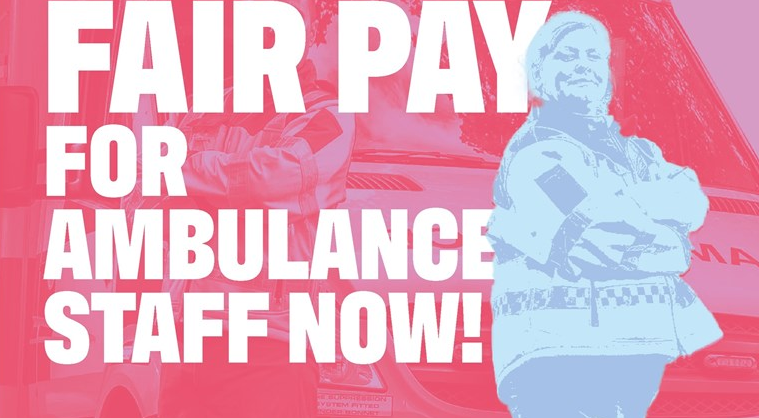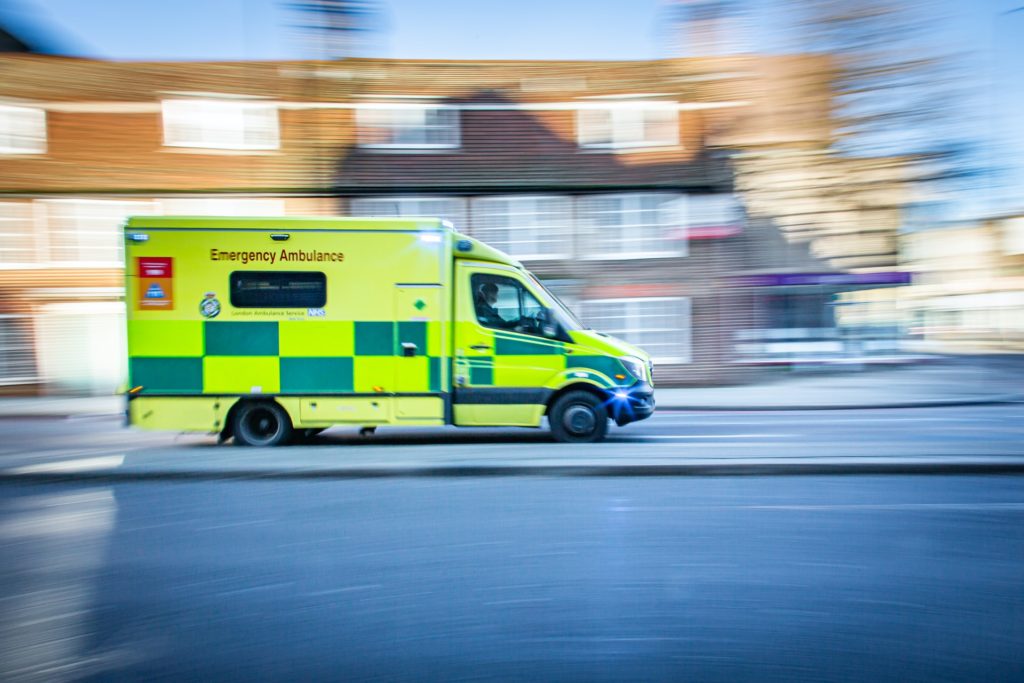“Recruitment and retention crisis” needs more attention, says ambulance trusts union
Ambulance workers are on the picket line for the second time over pay disputes.
South central and Southeast ambulance trusts have been on strike since 12pm today and plan to finish at 10pm.
A spokesperson from Unite, the trade union the ambulance trusts are members of, says although strike action has forced the government into negotiations, the union is not satisfied with the deal put forward.
Sharon Graham, general secretary from the union, said that the government must re-open talks to ensure a “proper wage offer” is made to NHS workers.

“The deal put forward does not meet the needs of NHS workers and does not tackle the recruitment and retention crisis, the government will need to think again,” they said.
Unite have organised picket lines in Northfleet, Banstead and Portsmouth with around “800 members across the two ambulance trusts taking action”.
“The local members decided that this was the most effective time to take action,” Unite commented when asked why they started at 12pm.
When The Canterbury Hub asked Unite if there were any more strikes in mind they responded with: “Unite is committed to escalating the industrial action and will be expanding the number of workers able to take action while also looking to hold fresh strikes.”
“The @GOVUK must re-open negotiations to ensure that a proper wage offer is made to #NHS workers. We have always said that a non-consolidated lump sum for 22/23 would not cut it…. 1/2https://t.co/mEusIaztax
— Unite the union: join a union (@unitetheunion) May 8, 2023
However, NHS Providers, which represents health service trust leaders, commented that due to the strikes hospital leaders are anticipating another day of disruptions to health services.
“This strike by Unite members at two ambulance trusts in the south of England will pile even more pressure on already overstretched NHS services,” chief executive of NHS Providers, Sir Julian Hartley said.
“As with previous strikes, trust leaders will be working hard to put measures in place to minimise interruptions to patient services, but they are anticipating another day of disruption, including rescheduling patient appointments, handover delays and increased pressure on emergency departments,” he said.
Although, with the strikes affecting ambulance services and adding pressures to NHS workers said that: “It is vital people continue to call 999 in a life-threatening emergency and use NHS 111 online services for non-urgent health needs.”
Our chief executive @julianhartley1 will be giving evidence to @CommonsHealth today on the impact of #nhsstrikes.
He will be reflecting on the intensive preparations trusts took to manage the impact on patients and how we move forward.
Watch live from 2.30pm 📺 https://t.co/UBdKf50rlb
— NHS Providers (@NHSProviders) May 9, 2023
“Leaders across the health service had hoped the NHS Staff Council’s welcome acceptance of a new pay deal signalled an end to the most disruptive period of industrial action in NHS history, but they continue to face more walkouts.”
Sir Hartley commented that in order to see an end to strikes “we need to see serious talks between the government and unions to resolve these ongoing disputes and to avert further strikes.”
Feature image: Ian Taylor – Unsplash
